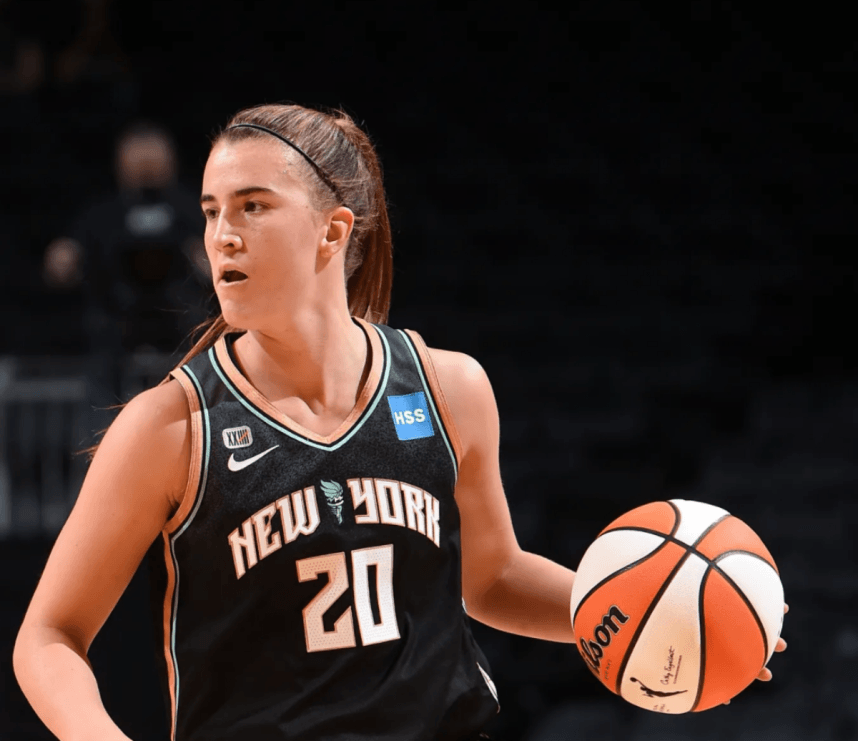Sportsbook Operators Struggle to Attract Women, Gen Z Clients
Posted on: June 14, 2023, 05:47h.
Last updated on: June 15, 2023, 11:13h.
It’s been more than five years since the Supreme Court struck down the Professional and Amateur Sports Protection Act (PASPA), paving the way for sports wagering to reach a broader audience in the US. Data indicates that it’s the usual suspects that are placing bets on sports.

Today, sports betting is live and legal in 33 states and Washington, D.C., and legal and waiting to launch in another five states. Even with that momentum and geographic expansion, sportsbook operators are struggling to connect with women and Gen Zers.
Data shows that the share of women who said they would never bet on sports (74%) is much higher than for men (51%) and all adults 21 and over (63%), regardless of the activity’s legality,” according Morning Consult data. “Additionally, Gen Z adults are much more likely than millennials to say they’d never bet on sports (62% versus 45%).”
In terms of generational wagering trends, millennials and Gen Z are avid bettors. But in the case of the latter, data indicate they prefer online casinos are visiting comparable land-based venues over sports betting.
Who’s the ‘Typical’ Sports Bettor?
The Morning Consult survey says the typical sports bettor is a millennial male that earns around six figures per year. Sixty-one percent of Gen Xers and 80% of baby boomers said they’d never wager on sports, regardless of its legality in their state.
Morning Consult, which is active in political polling, said sports wagering isn’t viewed along partisan lines among bettors.
“Some may assume bettors are more likely to identify as liberal given that Democratic governors have legalized online betting in huge sports gambling markets like New Jersey and Illinois. In reality, however, they’re pretty evenly split across the ideological spectrum, and lawmakers clamping down on betting has been a bipartisan affair,” said the research firm.
Using that logic, blue state governors that signed off on sports wagering, such as those in Illinois, Michigan, and New York, don’t deserve gold stars. That’s because they did so due to fiscal woes their policies and those of their predecessors created.
Since the fall of PAPSA in April 2018, some industry observers have tried to make sports wagering political, often lavishing praise on the likes of Illinois and New York for legalizing it. However, of the 33 states where it’s legal, former President Trump won 14 in 2020, and that doesn’t include Kentucky and Nebraska which are two of the five legal, but not live, states.
In terms of sportsbook operators looking to connect with Gen Z, college campuses were thought to be a good idea. But marketing deals with gaming companies and university athletic department drew controversy, and are now seen as taboo, leaving operators to consider other options.
“Instead of leaning on college campuses, sportsbooks will probably end up strengthening their connections with national sports bar chains like Buffalo Wild Wings and Dave & Buster’s, since the reach of these chains includes, but isn’t limited to, Gen Zers 21 and older,” added Morning consult. “A chain might end up exclusively playing DraftKings’ new streaming service on certain TVs in its restaurants, for example.”
Sportsbooks Shouldn’t Give Up on Women
There are signs that gaming companies shouldn’t throw in the towel on attempting to lure women to sports betting. On moral grounds, women are less opposed to sports betting than men.
“While some may attribute the differences in willingness to bet to moral reasons, the share of women who oppose gambling as being morally wrong (61%) is actually lower than the equivalent share of men (67%),” observed Morning Consult. “This suggests that a lack of familiarity with sports betting or sports broadcasts tailored to women’s interests is more likely the reason holding many back.”
Some women that currently don’t bet on sports said their opinions could be changed if gaming companies make more of an effort to highlight women’s sports. FanDuel, the largest online sportsbook operator in the US, is doing that with partnerships with the WNBA and the Women’s Tennis Association (WTA).
“One additional step would be to create more custom content surrounding up-and-coming women’s sports stars like Caitlin Clark and Angel Reese to accelerate their rise,” concluded Morning Consult.
Clark (Iowa) and Reese (LSU) are college basketball stars.
Related News Articles
Disney CEO Bob Chapek Sees Sports Betting in ESPN Future, But Not as Bookmaker
DraftKings Says ‘Up 10’ Promo Still Alive, Didn’t Necessarily Lose Money on It
PointsBet, NBC Extend Accord, Eye More Regional Focus
Most Popular
Mega Millions Reportedly Mulling Substantial Ticket Price Increase
NoMad Hotel to Check Out of Park MGM on Las Vegas Strip
VEGAS MYTHS BUSTED: To ‘86’ Someone Was Vegas Mob Slang for Murder
Most Commented
-
End of the Line for Las Vegas Monorail
— April 5, 2024 — 90 Comments -
Mega Millions Reportedly Mulling Substantial Ticket Price Increase
— April 16, 2024 — 8 Comments -
Long Island Casino Opponents Love New York Licensing Delays
— March 27, 2024 — 5 Comments
















No comments yet